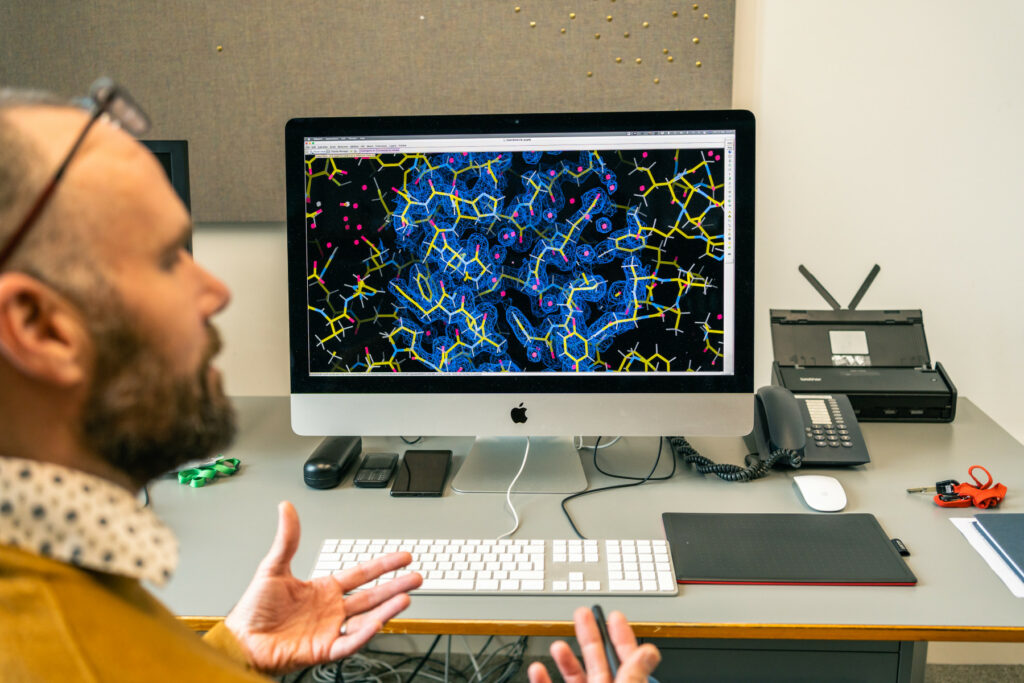Jeremy Shears, Chief Scientist for Biosciences at Shell said: “Shell aims to transition to a net-zero emissions energy business by 2050 and our work with the Manchester Institute of Biotechnology is important to unlock a more commercial route to sustainably produced chemicals. If we can demonstrate an effective route to bio-production, we hope this will be the catalyst for industrial change across the sector.”
Science, Research and Innovation Minister, Andrew Griffith, said:
“Our new bioscience prosperity partnerships are a valuable opportunity for government, business and academia to come together and help unleash world-class, pioneering discoveries across the UK while growing our local economies.
“More than £17m of Government funding is backing vital projects including work in Belfast to unearth life-saving drugs, in Manchester to improve skin health research and in Cambridge to tackle a major source of global pollution – enhancing the health and wellbeing of people across our country and beyond.”
Dr Lee Beniston FRSB, Associate Director for Industry Partnerships and Collaborative R&D at BBSRC, said:
“The inaugural round of the BBSRC prosperity partnerships programme has been a huge success. Led by BBSRC, with investment from our colleagues at MRC and EPSRC, we will invest more than £17 million in ten projects.
“This investment will support outstanding, long-term collaborative partnerships between businesses and academic researchers across the UK. Through the BBSRC prosperity partnerships programme, the businesses involved are investing over £21 million into research and development.
“The projects supported will deliver on UK ambitions for private sector investment in research and innovation as outlined in the Science and Technology Framework, helping to drive economic growth and societal impact through key bioscience and biotechnology sectors and industries.”
Industrial biotechnology uses nature’s own processes to produce value-added products, it is currently used to produce high-value chemicals such as pharmaceuticals. Enzymes and bacteria are the staple workhorses of biocatalysis – a process that speeds up chemical reactions – and can produce target chemicals by using anything from biomass to anthropogenic waste as a feedstock. Industrial biotechnology holds huge potential for creating a sustainable manufacturing environment and supporting the world’s transition to net zero.
The University was also successful in securing a second Prosperity Partnership with Boots, and co-leading a third with University College London.
';

